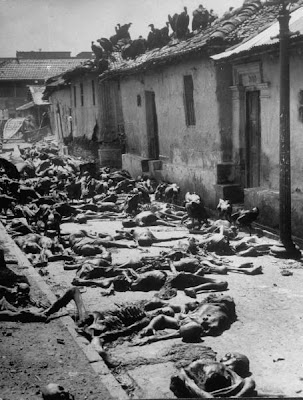Invasions by Turkish-Afghan marauders like Ghori and Ghaznavi only established Muslim populations in the major cities of the Punjab. The countryside was far from Muslimsurinder wrote: Especially since the Pakjabis learned the alaf-bey-pey of their faith at the feet of these pashtuns. It was there swords which rested on the shoulder blade of the Pakjabi ancestors asking them "are going to convert or ...".
Pashtuns ruled these guys for centuries. The quirk of fate is that now the Pakjabis rule the pashtuns (fate is indeed fickle).
The bulk of Muslim Punjabis are descended from herding (and raiding) nomadic tribes like the Jats, etc until Punjbi Sufi Pirs like Baba Farid drew them in to both agriculture and Islam. Isnt Baba Farid also one of the figures mentioned in the Guru Granth Sahib? It wasnt a very formal Islam with ulama passing fatwas - more a case of visiting shrines and hoping that the baraka from the tomb and the current pir would intercede for you. The pirs and the landed class were like peas in a pod. One looked out for another - they supported whomever was dominant, and whomever left their political and economic power untouched. The Mughals did their best to cultivate influence with the pirs by making them jagirdars.
I wouldnt say its a quirk of fate that saw the rise of Pakjab - they had by far the larger population, the economic clout, a larger educated middle class, sufficient numbers of experienced military and bureaucratic personnel from the colonial era. Modernity shifted the balance of power from the tribes back to the states.
So-called '4th generation warfare' suggests that the balance has tipped back the other way. My own feeling is that Pakjab's greatest strength that allowed them to leverage modernity was a period of strong economic growth, backed by a flexible socio-political system that integrated different jathis and different classes through the pirs.
Where Pakjab went wrong was to import the formal Islam of the Doab, both Barelwi and Deobandi, which didnt have much of a following in Pakjab. The revivalist ulama are not tied to the pragmatic interests of Pakjabis - their goal is a centralised, authoritative Islam that works pretty differently from pragmatic folk Islam.
To make matters worse the Pakistani state, often led by ashraf mohajirs has kept Pakjab's ruling classes politically fractured in order to preserve military and bureaucratic power. This is to a great extent the underlying source of the conflict between Nawaz Sharif and his former mentor the PA. Until the 1980s for example Sunnis and Shia celebrated muharrum together. Zia (not a Pakjabi!) attempt to turn Pakistan in to a Sunni, Hanafi state tried to discourage that, triggering a sectarian conflict that the Pakjabi elite does not want. Wealthy Sunni Pakjabi landlords have far more in common with Shia landlords socially, economically and religiously than with the down and outs the Deobandis have taken in, trained and set on the existing order. Consider the Sharif brothers aggressive pursuit of sectarian Deobandi killers in Pakjab, and their strong Shia support in the face of PA/ISI indifference.
Although Deobandi madrasas have mushroomed in southern Punjab, it still seems like huge numbers of rural Serikis visit pirs and dargahs for for blessings, cures, a chance to celebrate, etc. We havent seen sectarian violence at the level of ordinary people, the kind of rioting and ethnic cleansing of Partition, Lebanon, Iraq, etc. Unless the pirs work out some kind of a deal with the Taliban which allows their kind of Islam (doctrinally offensive to the Taliban) to continue to exist, there will be no wholesale takeover in the Pakjab. Just violence and instability along polarised ideological and organisational lines, maybe analagous to Indian Punjab's Khalistani insurgency. Remember this is not the Ahmadis, or even the Shia (who have continued to hold their own with support from the Pakjabi political and religious establishment) - the cult of saints is the kind of Islam that the majority of practicing Pakjabi Muslims depend on.
The key factor here is the PA's mughal rather than Pakjabi complex, and its limited interest in Pakjabi concerns. It is the PA that for reasons of state prevents Pakistanis from comprehensively defending themselves against the Deobandi jihad.
